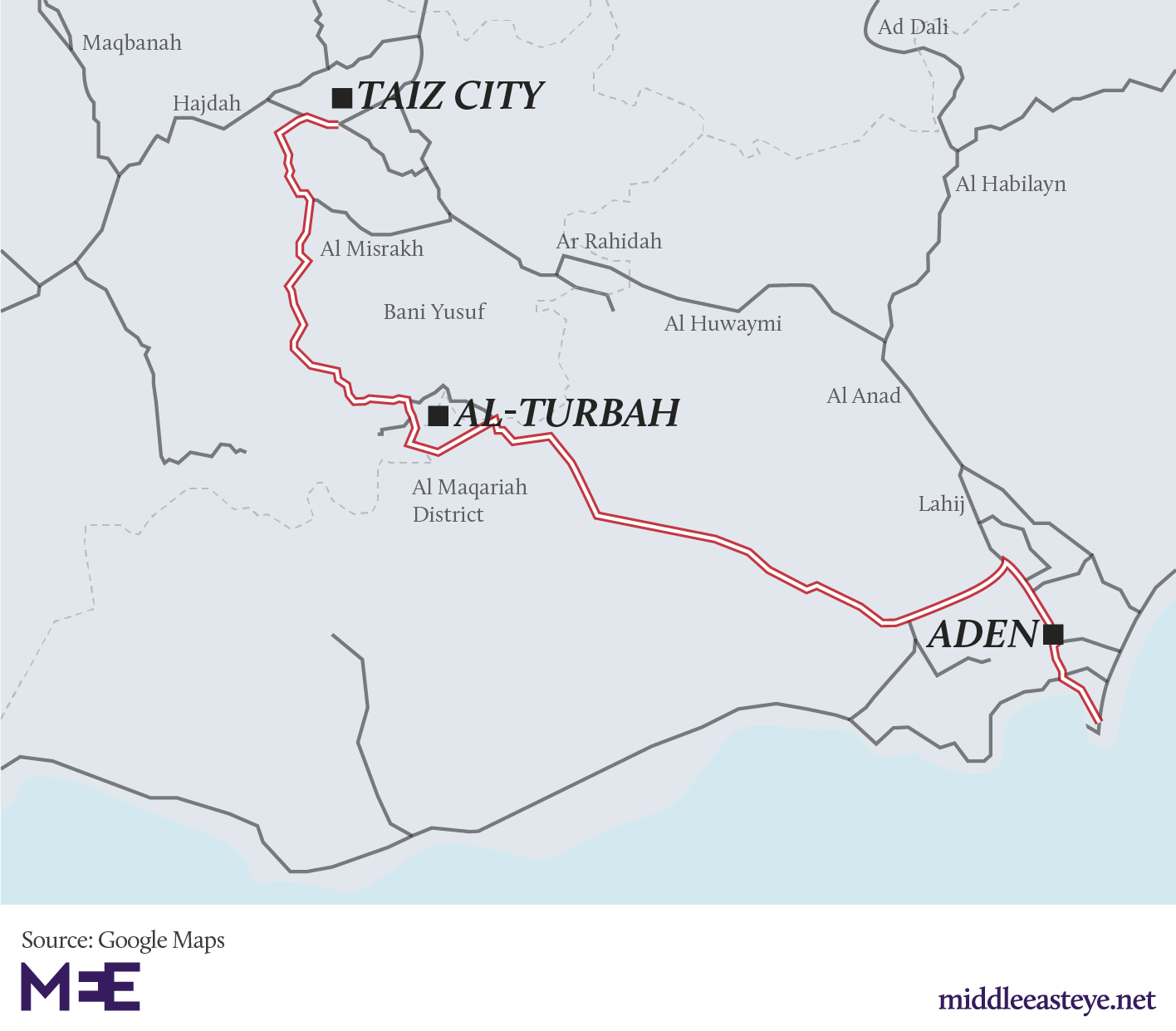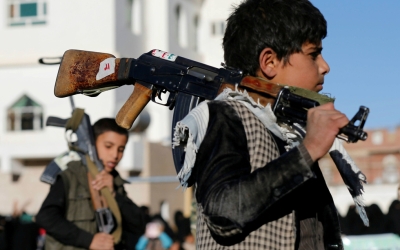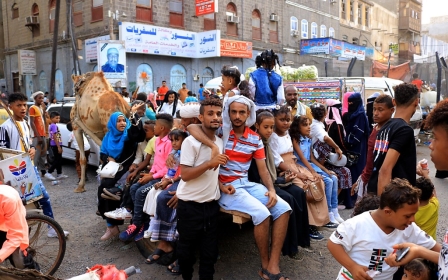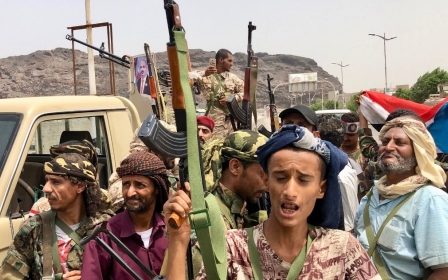Yemen's southern tensions crack open deadly faultlines in Taiz
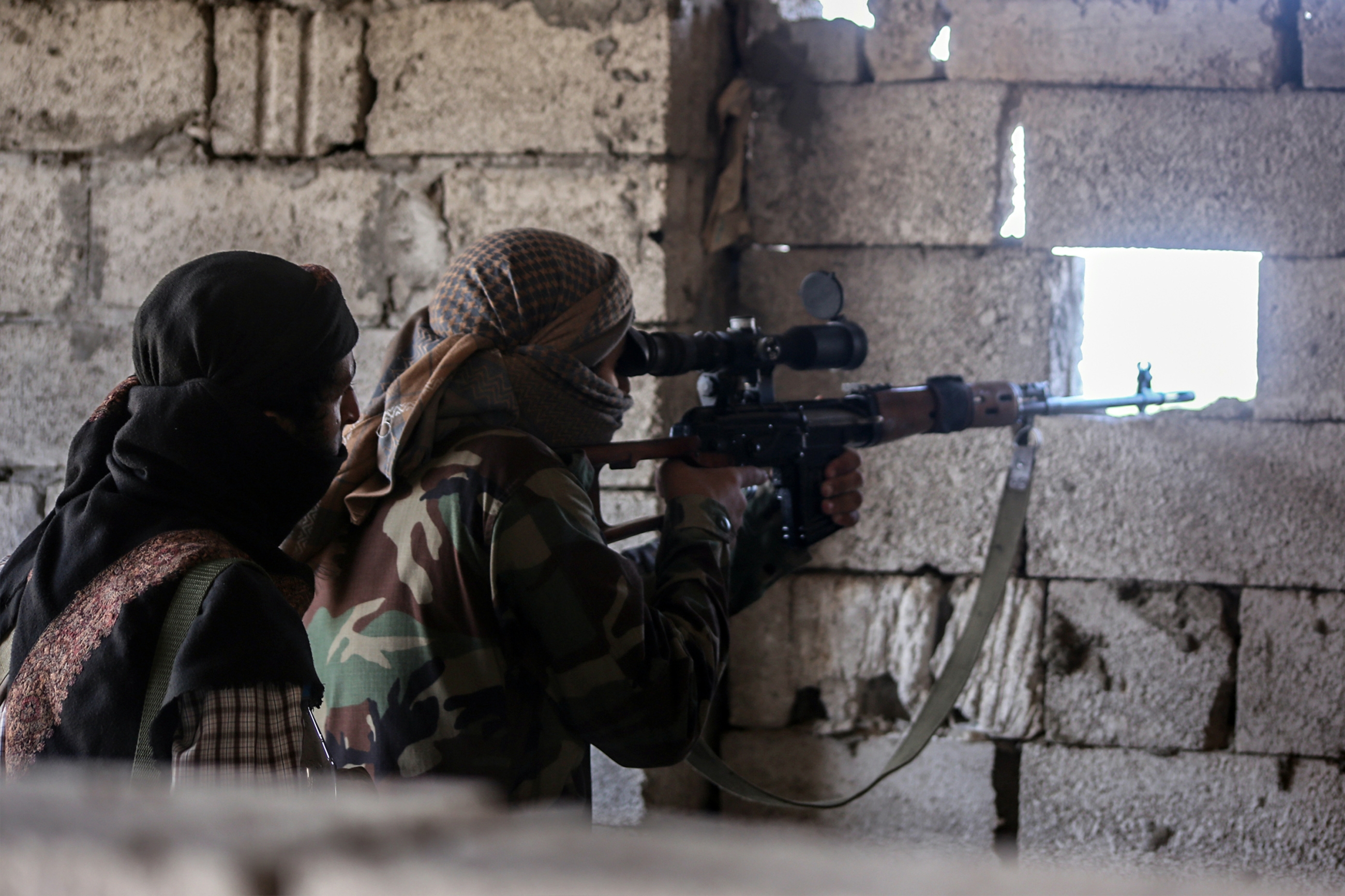
The outbreak of hostilities between erstwhile allies in south Yemen has radically altered the dynamics of Yemen’s conflict in just a few days, with UAE-backed southern secessionists making a gambit for control of Aden and its environs.
But a few kilometres north in Taiz province, the defeat of forces loyal to President Abd Rabbuh Mansour Hadi has sparked a new confrontation, as other Emirati proxies make a play for control.
The province is already the location of a hot front between the Houthi movement and its enemies.
Now, following days of clashes along the main highway between the cities of Aden and Taiz, some Yemenis fear greater destabilisation. It is a situation, they say, that could hand their home to the control of foreign powers.
"The UAE wants our support and to perpetuate battles in the city like they did in Aden, but we need to be free and to manage our city ourselves," Maged Khalil, a 42-year-old teacher in Taiz, told Middle East Eye.
New MEE newsletter: Jerusalem Dispatch
Sign up to get the latest insights and analysis on Israel-Palestine, alongside Turkey Unpacked and other MEE newsletters
Others view it differently, however, and see an opportunity for Taiz's provincial capital to be opened up to different groups, having previously been ruled primarily by the Saudi-backed al-Islah party.
The battles in Taiz are between two groups with little love lost between them and a history of clashing: UAE-backed Salafis and Saudi client al-Islah.
However, they also reflect a growing divide between Abu Dhabi and Riyadh, which have been partners for the past four years in a military coalition that intervened in Yemen in 2015 to reinstate Hadi's government after it was ousted by Houthi rebels in late 2014.
But now proxy forces, supported by the Emiratis and the Saudis and once focused on the battle against the Houthis, are increasingly fighting one another.
Roadside clashes
Earlier this month, the UAE-backed Security Belt Forces (SBF) - the Southern Transitional Council's military wing - seized Aden from Hadi's forces.
About a three-hour drive north, in Taiz city, clashes between the Salafis, who are another Emirati-backed group, and al-Islah over control of Taiz's organs of government had only recently settled down.
But the SBF's takeover of Aden further emboldened the Salafis, who had largely abandoned the area until just recently, say residents and fighters.
Intense battles broke out in al-Turbah last week between UAE-backed forces led by Salafi leader Abu al-Abbas, and the pro-Hadi Fourth Brigade forces, led by fighters affiliated to al-Islah.
Al-Turbah lies on the strategic main road between Taiz and Aden and the route has been Taiz's only artery since the Houthis began besieging it from three directions in 2015.
Clashes disrupted that traffic on 15 August, however, as the Salafis attempted to take control of al-Turbah's police station.
The forces were unable to capture the station, but the next day they opened a new front in the al-Berain area nearby and blocked the road once again.
Ongoing tensions
A year ago, after fierce clashes between Salafi and pro-Hadi fighters in Taiz, a mediation committee ordered the Salafis to leave the city with their families for rural areas, handing control to al-Islah - which is the Yemeni branch of the Muslim Brotherhood.
Marzouq al-Qaderi, a soldier fighting alongside the Salafis in Taiz, told MEE that the Salafis had left to avoid further disputes and to focus on the wider war.
"We left the city to al-Islah and went to fight the Houthis on the front lines. But al-Islah kept chasing hardline Salafi members and firing non-Islah leaders from their positions in public offices," he said.
'We blocked the road to pressure al-Islah to accept us in Taiz and remind them that we can fight them'
- Marzouq al-Qaderi, pro-Salafi fighter
But Qaderi said Taiz must be "a province for all people, and not only for Islahis".
"That is why we blocked the road, to pressure al-Islah to accept us in Taiz and remind them that we can fight them if they do not stop," he said.
Clashes raged in the middle of the Taiz-Aden road from Thursday to Monday, until a mediation committee that is run by the Saudi-backed Taiz governor proposed an agreement that would see a new force intervening and taking control of the route.
The committee suggested the Giants Brigades, also known as al-Amaliqa, for the task, a militia mainly comprised of southern Salafi fighters funded by the UAE who have steered clear of the clashes so far.
"We are controlling the main road in al-Berain area, and we are still waiting for the mediation committee to reach a permanent solution between us," Qaderi said.
Emirati hands
Supporters of al-Islah like Maged Khalil, however, are wary of another UAE-backed attempt to capture the city, already largely surrounded by the Houthis.
"Everyone in Taiz knows that the UAE wants to impose the SBF's control, just like Aden, and besiege the city's last remaining entrance," Khalil told MEE.
"But al-Islah rejects this idea, and that has been the main problem with the UAE's presence in Taiz."
The UAE, he said, has been trying to "plant several hands" in Taiz and "when one of them fails, they replace it with a new one".
During the fighting last week in al-Turbah, Khalil said, the Salafis were led by Abu al-Abbas, the UAE-funded Salafi militant leader designated by the US as an al-Qaeda and Islamic State group supporter in October 2017.
'Everyone in Taiz knows that the UAE wants to impose the SBF's control, just like Aden'
- Maged Khalil, Taiz resident
"As Abu al-Abbas failed to control the main road, the mediation committee will bring in a new arm of the UAE," Khalil said, referring to al-Amaliqah.
The UAE has supported its southern allies to expand the SBF's control on Aden, Lahj, Abyan and al-Dhale. Taiz and Shabwa might become the SBF’s next targets, but al-Islah has been resisting their advances.
“Al-Islah is the only obstacle in front of the UAE in Taiz, and if not for al-Islah, Taiz would have fallen under the control of the UAE and its militia,” Khalil said.
According to Khalil, pro-UAE residents of Taiz have been accusing al-Islah of dismissing heads of government institutions and expelling Salafis from Taiz’s Old City based on unfounded accusations.
"Everyone knows that Abu al-Abbas is one of the UAE's hands in Taiz, and he fought the government for years," Khalil said.
"But then pro-government forces liberated Taiz from UAE-backed forces, and that is when the UAE supporters resorted to those accusations."
Saleh's forces unnerve
The Salafis aren't the only forces backed by the Emiratis in the area, with fighters commanded by Tareq Saleh, the nephew of the late president Ali Abdullah Saleh, also present.
Tareq Saleh fought with the Houthis against the pro-Hadi forces in Taiz from 2015 until his uncle's death in December 2017. He then switched sides and fled to Aden to establish an anti-Houthi force, backed by the UAE.
That force, now called the Republican Guards, has been fighting alongside the al-Amaliqa against the Houthis on the west coast. But in recent months, members of the Republican Guards moved to Taiz and settled there with their families.
Saleh's fighters say they can't live in the Houthi-held north and are similarly not welcomed by the southerners in Aden.
Although they argue that they have settled in Taiz as it is one of the few places that are not overtly hostile to them or their families, Saleh's fighters make some uncomfortable despite displaying no arms and participating in no recent battles.
"Tareq is a UAE hand, and he used to fight against Taiz," Adel, a local resident, told MEE on condition of anonymity for fear of reprisal.
"The presence of Saleh's forces indicates that a dark future awaits Taiz. We don't want the UAE or al-Islah to open new military camps in Taiz, and, definitely, we don't want to see battles any more. All we need is a peaceful solution."
The pro-government forces in Taiz, he added, have stopped their fighting against the Houthis and instead have started infighting - a big threat for civilians who could be stuck in the city if the only road out is cut off once more.
"The Houthis are definitely happy with this situation in Taiz," he said. "Taiz is under siege. If this road is closed, we will not find a way to flee our houses if battles reach the city."
Middle East Eye delivers independent and unrivalled coverage and analysis of the Middle East, North Africa and beyond. To learn more about republishing this content and the associated fees, please fill out this form. More about MEE can be found here.


